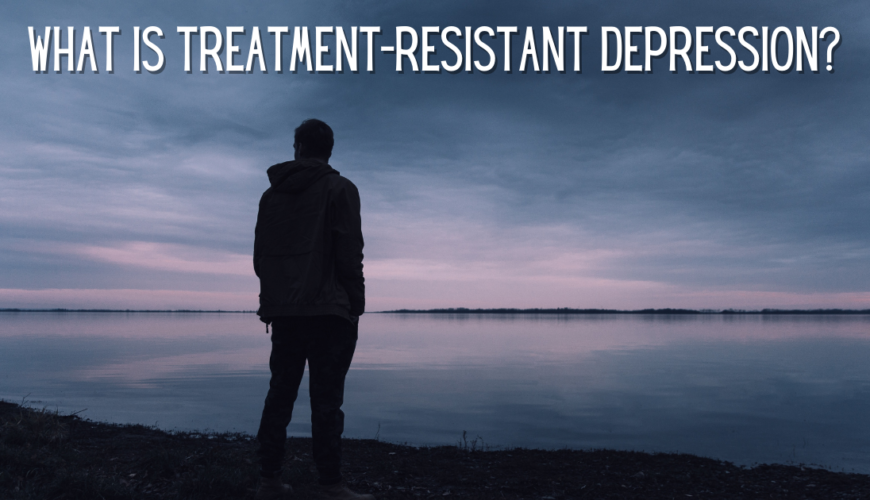If you have been treated for depression but your symptoms haven’t improved, you may have treatment-resistant depression. Taking an antidepressant or going to psychological counseling can help to ease depression symptoms for many individuals. However, when it comes to treatment-resistant depression, standard treatments aren’t enough. An individual may experience no change in symptoms, or symptoms may temporarily improve and then return. Studies have found that 30% to 40% of people only experience a partial remission of depressive symptoms after taking prescribed antidepressants.
Doctors and researchers are not entirely sure what causes treatment-resistant depression. Researchers believe that inherited characteristics may play a role in how the body responds to different antidepressants. While some genes have been associated with treatment-resistant depression, further research is needed to identify genetic biomarkers. Poor response to standard depression treatments can also occur when people have been incorrectly diagnosed with depression. While they may have symptoms of major depressive disorder, they may have a different condition such as bipolar disorder.
If your doctor believes that you have treatment-resistant depression, they may recommend a different dosage, medication, or treatment approach. Your doctor may also refer you to a psychiatric consultant for additional treatment advice and options.
Dealing with treatment-resistant depression can be difficult for several reasons. Not only are you coping with persistent symptoms of depression, but you are also struggling with the difficulty of treating your condition.
Some of the things you can do that can help:
- Follow your treatment plan. Even if it feels like you aren’t experiencing improvements, it’s important to take your medication as prescribed and attend recommended therapy sessions. Both therapy and antidepressants can take time to work, so patience is key.
- Find ways to manage your stress. Unhappiness and stress that stems from areas of your life such as relationships, work, school, and finances can also contribute to feelings of depression. Stress management techniques such as meditation, journaling, progressive muscle relaxation, and yoga may provide some benefits and relief.
- Avoid drugs and alcohol. Substance use can not only worsen symptoms of depression; it can also cause adverse interactions with your antidepressant medications. Always talk to your doctor about any substances, other medications, or even natural supplements that you are taking for appropriate guidance.
- Practice good self-care. While it can be difficult to do when you are feeling depressed, caring for yourself by eating healthy, getting a good night’s sleep, and exercising regularly may help you better manage your symptoms.
Preferred Research Partners in Little Rock, Arkansas is currently enrolling individuals for a clinical trial. If you or someone you know is living with treatment-resistant depression (TRD), you may qualify for one of our currently enrolling trials. Learn more to see if you qualify!

